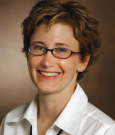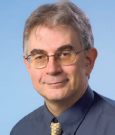ASCO will once again be offering a series of Pre–Annual Meeting Seminars ahead of its 2015 Annual Meeting in Chicago. First offered in 2012, the Pre–Annual Meeting Seminars are a series of in-depth educational opportunities dedicated to topics of interest in the oncology community.
The seminars are conveniently scheduled ahead of the Annual Meeting in Chicago for attendees looking to maximize their learning and networking opportunities. All seminars are held onsite at McCormick Place in Chicago from 12:30 PM on Thursday, May 28, until 11:00 AM on Friday, May 29.
Each year, ASCO members and volunteers propose topics for the Pre–Annual Meeting Seminars, which are then reviewed and discussed by ASCO leadership. Once the topics are selected, planning committees select faculty and finalize the programs.
The 2015 program will feature two new seminar topics: “Faculty Development for Medical Educators: Advancing My Career and Teaching Repertoire” and “The Economics of Cancer Care.” In addition, three of the popular topics featured at the 2014 Pre–Annual Meeting Seminars are returning in 2015: “New Drugs in Oncology,” “Genetics and Genomics for the Practicing Clinician,” and “Hematology for the Oncologist,” which is cosponsored by the American Society of Hematology (ASH).
Faculty Development for Medical Educators
The first new seminar added to the 2015 Pre–Annual Meeting Seminars is “Faculty Development for Medical Educators: Advancing My Career and Teaching Repertoire.” This seminar will feature an interactive workshop discussing personal career development, the challenges and opportunities for medical educators, development of strong educational portfolios, and how to maximize the use of technology for teaching.
“Traditionally, the focus of professional development within oncology has centered on the development of the clinical or laboratory-based investigator,” said seminar Co-Chair Jill Gilbert, MD, Associate Professor of Medicine and Director of the Hematology/Oncology Fellowship Program at the Vanderbilt University School of Medicine. “However, ASCO recognizes that we are entering a new era of medical education—a renaissance of sorts—and that landmark changes in the health-care landscape demand that established providers and trainees are prepared to take on the challenges of delivering high-quality, compassionate care, with attention to fiscal responsibility and patient involvement.”
In this changing environment, it is anticipated that medical educators will serve as the catalyst for such change both on an institutional and a national professional organization level.
“ASCO recognizes the current gap in development opportunities for the medical educator, and with the Pre–Annual Meeting Seminars, now begins its own journey as a national leader in medical education professional development,” Dr. Gilbert said. “As session Co-Chair, I strongly encourage medical educators at all stages of their careers to take advantage of this first-of-its-kind, exciting opportunity.”
The Economics of Cancer Care
The second new 2015 seminar will discuss the dramatically shifting landscape of financing and organization in cancer care. ASCO recognizes that many stakeholders, including cancer care providers, are likely affected by the rapid pace of change occurring in reimbursement models, treatment pathways, and how best to provide quality care. “The Economics of Cancer Care” will provide participants sufficient background knowledge to make better-informed decisions in their relations with patients and payers.
This seminar will cover current and innovative strategies for rewarding research and development in cancer therapeutics and diagnostics, trends in trial costs, drug pricing, financial burdens placed on patients, the basics of reimbursement and coverage decision-making, lessons from innovative reimbursement, coverage and treatment models, options for reimbursement reform, and quality in the outpatient setting.
New Drugs in Oncology
Returning in 2015 is the seminar “New Drugs in Oncology.” This seminar’s focus will be the theoretical and practical aspects of both recently approved drugs and those on their way to approval, including information on mechanisms of action, administration, toxicity, side effect management, and use in the clinic.
The seminar will be co-chaired by George Sledge, MD, FASCO, Professor of Medicine at the Stanford University Medical Center, and Anthony Tolcher, MD, Director of Clinical Research at South Texas Accelerated Research Therapeutics.
Genetics and Genomics for the Practicing Clinician
Another of the returning seminars is “Genetics and Genomics for the Practicing Clinician.” Oncology is benefiting from revolutionary advances in DNA-sequencing technology and genomic analysis, and, as a result, the field is changing very rapidly, according to seminar Co-Chair, Michael F. Berger, PhD, Associate Director of the Marie-Josée and Henry R. Kravis Center for Molecular Oncology at Memorial Sloan Kettering Cancer Center.
Tumor genomic profiling is now routinely performed in academic and—increasingly—community settings.
“This practice can provide important diagnostic and prognostic information and enable the selection of therapies tailored to a patient’s molecular profile,” Dr. Berger said. “However, it can also reveal unexpected inherited susceptibilities to cancer and other diseases, with major consequences for patients and their families.”
Practicing oncologists and other cancer providers must work to understand the variety of tests available, when they should be administered, and what to consider when interpreting the results.
This Pre–Annual Meeting Seminar will cover both tumor and inherited genetic variation, as well as explain the variety of tests available to the clinician and when they should be administered.
“We’ve put together a really exciting program covering both tumor and germline analysis, focusing on case studies illustrative of scenarios frequently encountered by clinicians,” Dr. Berger said.
Hematology for the Oncologist
In 2014, ASCO teamed up with ASH to offer a seminar titled, “Hematology for the Oncologist,” and this popular seminar has been brought back for the 2015 Pre–Annual Meeting Seminars.
“Medical oncologists are constantly being asked to consult on benign hematology issues, whether or not they have done additional formal training in hematology,” said seminar Co-Chair Gary I. Cohen, MD, Director of the Sandra and Malcolm Berman Cancer Institute at the Greater Baltimore Medical Center and Associate Professor of Oncology at Johns Hopkins School of Medicine.
For that reason, this cosponsored seminar will focus on hematologic issues that medical oncologists commonly encounter in a consultative practice, such as the etiology and treatment of disorders of red cells or platelets, myeloproliferative syndromes, clotting disorders, and more.
“As oncologists in general practice, we have worked diligently with our ASH colleagues to provide current updates on both the common and complex hematologic problems encountered in a typical oncology consultative practice,” Dr. Cohen said. “I encourage attendance by all oncologists to get a better understanding of these critical clinical care issues that we all face in everyday practice.”
Register Now
Anyone interested in attending the Pre–Annual Meeting Seminars can register at the ASCO Annual Meeting Registration Site. Registration includes a boxed lunch on Thursday and a continental breakfast on Friday. If registered on or before April 22, 2015, registration is $100 for ASCO members and $200 for nonmembers. These live activities have been approved for AMA PRA Category 1 Credit™. ■
© 2015. American Society of Clinical Oncology. All rights reserved.




